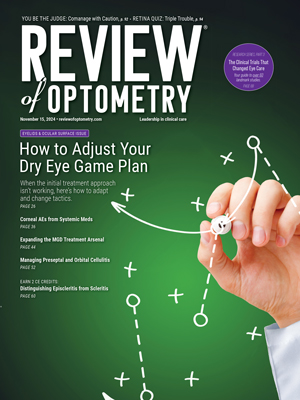Topical antibodies applied to ocular immune cells may help the eye protect itself from extensive secondary damage during a Pseudomonas aeruginosa infection, according to a study in the October issue of Infection and Immunology.

Pseudomonas infection.
Microbial keratitis due to Pseudomonas can cause severe ocular damage or blindness, particularly in contact lens wearers. “Pseudomonas is everywhere in the environment, and can be unwittingly introduced into the lens cleaning solution, or directly onto the contact lens, so everyone who uses contact lenses is at risk,” said principal investigator Gregory P. Priebe, M.D., of Boston Children’s Hospital.
In this study, Dr. Priebe’s team evaluated the effect of inhibiting the inflammatory immune response of interleukin-17 (IL-17) in a mouse model of Pseudomonas ulcerative keratitis. They suggested that while the IL-17 response facilitates isolation and destruction of infectious pathogens, it also causes collateral tissue damage and additional corneal inflammation.
Throughout the study, the researchers were concerned that blocking the IL-17 response could potentially limit the immune system’s inherent bactericidal function.
“Surprisingly, just the opposite was seen,” said Dr. Priebe. “Blocking IL-17 with antibodies led both to fewer neutrophils [immune cells] in the eye, and to fewer bacteria. Interestingly, this is a common pattern in eye infections—the body’s responses that make the damage worse are often the same things needs to limit infections,” he added.
The researchers concluded that this novel therapeutic approach, which limits secondary corneal damage but still promotes natural antibacterial function, could hold tremendous promise for patients who present with sight-threatening eye infections.
Zaidi TS, Zaidi T, Pier GB, Priebe GP. Topical neutralization of interleukin-17 during experimental Pseudomonas aeruginosa corneal infection promotes bacterial clearance and reduces pathology. Infect Immun. 2012 Oct;80(10):3706-12.

